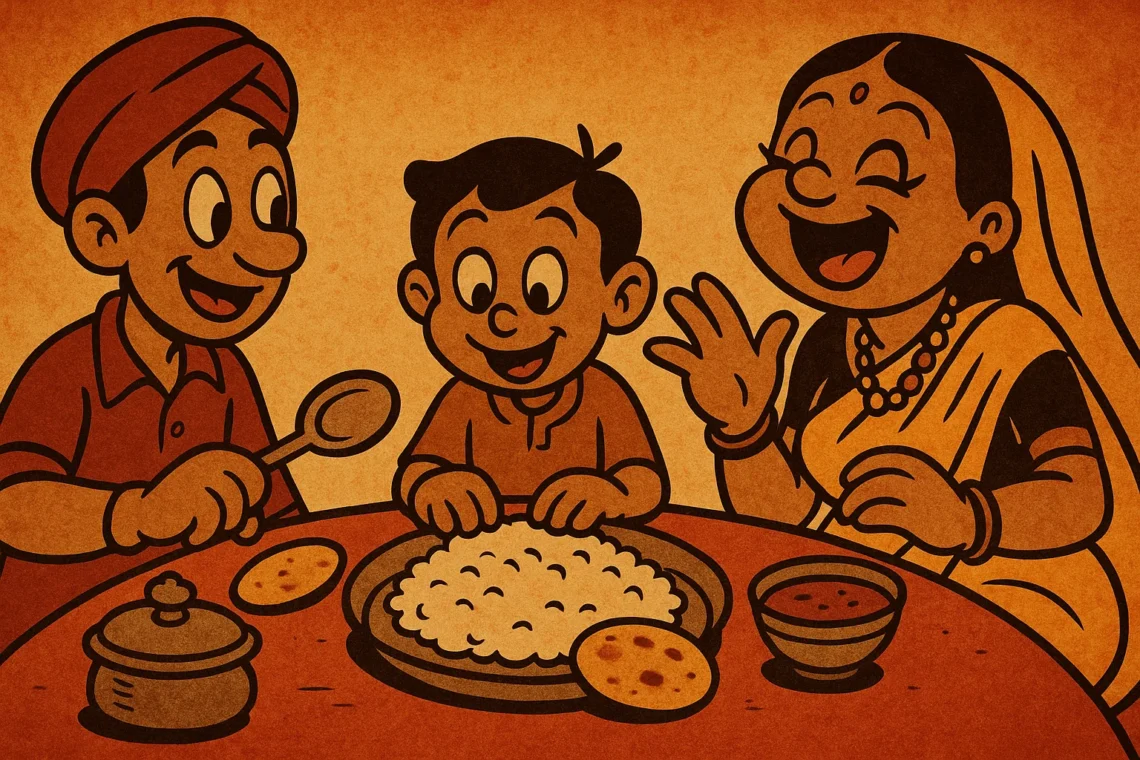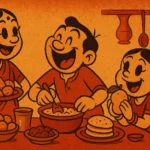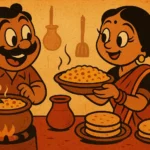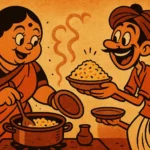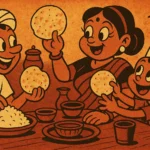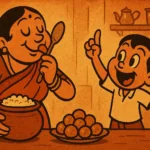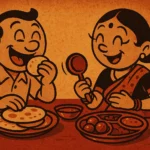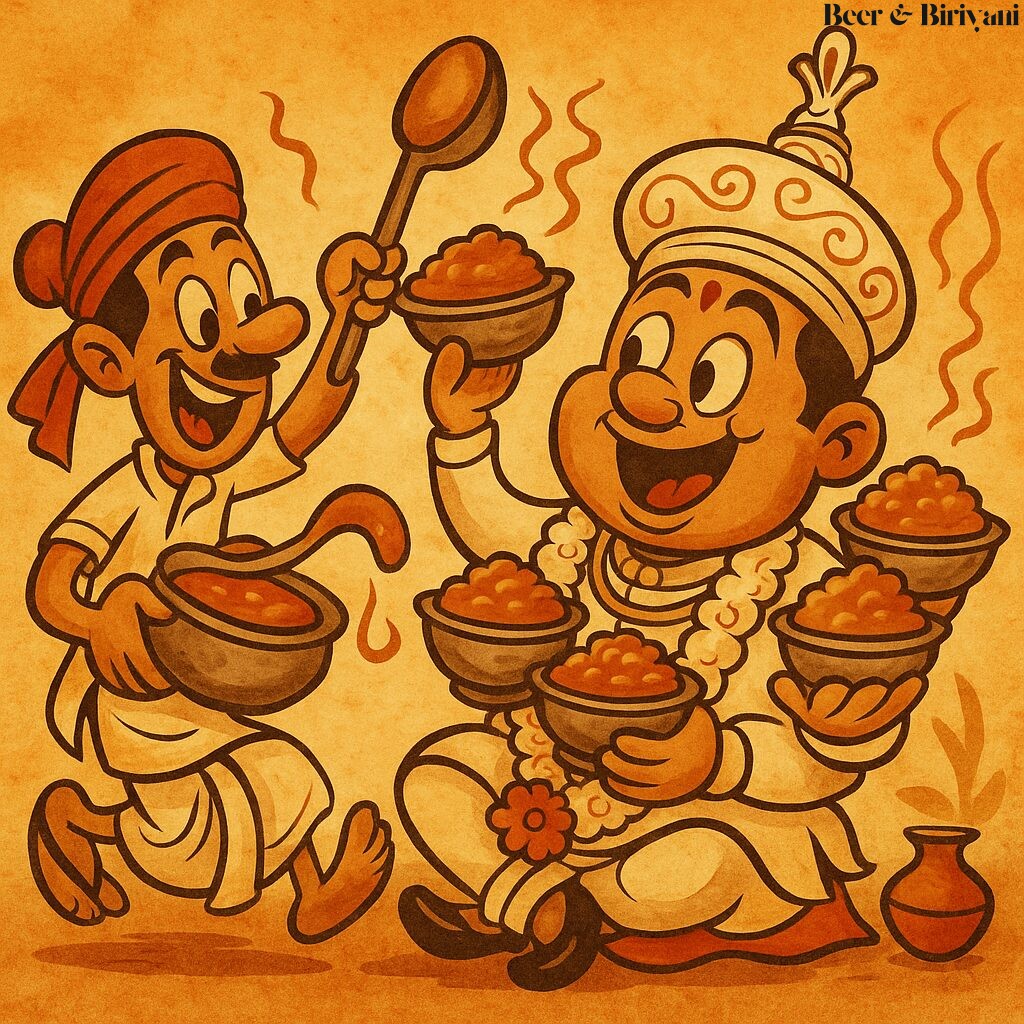Every Indian household has that one dish. The comfort food. The fallback plan. The thing you eat in pajamas with no garnish, no cutlery, no performance. It’s the meal that shows up when you’re sick, sad, tired, or just not in the mood to impress. And precisely because of that, it’s the one thing you never, ever serve to guests — not because it’s not good, but because it’s too personal. Too honest. Too bare.
In our house, that dish was khichdi. Simple moong dal khichdi with a spoon of ghee, maybe a side of papad if someone felt fancy. No coriander, no tomato slices arranged like decoration, no strategic swirl of yogurt. Just hot, soft, slightly overcooked comfort on a steel plate. It wasn’t meant to be shared. It was meant to hold you together.
The Food You Make When No One’s Looking
Khichdi wasn’t a dinner party option. It never showed up on the “what should we cook if uncle is visiting?” list. It wasn’t the kind of dish you plated. You ladled it. You poured it. You ate it curled up on the sofa, licking your fingers between bites, grateful for how quietly it filled you. If a guest showed up and you happened to be eating it, someone would say, “We’ll make something else,” even if there was plenty. Khichdi was not for guests. It was for us.
Every family has their version — yours might be curd rice, poha, dalia, or that one sabzi that only your mom makes right. But the rule holds: some foods are too close to the bone. Too wrapped in history and mood. Serving them would feel like serving someone your journal. And no matter how polite the guest, you don’t want them evaluating your emotional reset button.
“Not This, We’ll Make Something Nice”
Even when guests insisted, “Make anything, simple food is fine,” my mother never made khichdi. “We’ll do pulao,” she’d say, or “How about upma and chutney?” Because khichdi, while simple, was not generic. It was specific. Ours was made thinner when someone was unwell. Thicker and spiced when someone needed cheering up. Extra ghee if you’d cried that day. It changed depending on who was in the room and how they were feeling. How do you explain that to a guest?
There was a kind of quiet reverence to it. It wasn’t cooked with flair. It wasn’t meant to impress. It was made with one eye on the pressure cooker and one ear on your breathing. It was food you didn’t have to talk around. Which is why it felt strange to serve it to someone who didn’t know what it meant. Who might add ketchup. Or worse — ask for a recipe.
Now I Make It for Myself
In my kitchen now, khichdi is still off-limits for company. I’ll make rajma, biryani, dosas from scratch. But if someone’s coming over, I hide the idea of khichdi like a secret. Not because I’m ashamed of it. But because it feels too sacred. Too unfiltered. When I make it, I’m not trying to feed someone else — I’m trying to come home to myself.
I don’t photograph it. I don’t write the recipe down. I don’t talk while eating it. It’s the one dish that demands silence. A warm kind of silence, the kind that says: you’re safe, you’re full, you can stop trying now.
Some Dishes Aren’t for Sharing
Hospitality in our culture means giving the best of what we have. But sometimes, the best isn’t what you serve — it’s what you save. The one dish you never put on the guest table because it belongs to a different table. The one inside you. The one you return to when everything else is too much.
So no, you don’t serve khichdi to guests. Not because it’s not good enough — but because it’s yours. And when you need it, it shows up. Without questions. Without expectations. Just warm, quiet presence on a plate.
Born in Mumbai, now stir-frying feelings in Texas. Writes about food, memory, and the messy magic in between — mostly to stay hungry, sometimes just to stay sane.

